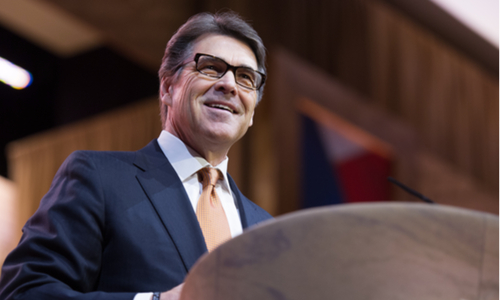Energy

Makovsky
Tuesday, September 30, 2014“We need to take action now to limit global temperature rise. We need all hands on deck to ride out this storm.”Last week at the UN Headquarters in New York City, United Nations Secretary-General Ban Ki-moon hosted the 2014 Climate Summit with the goal of pushing global leaders to enact climate-saving policies. With all the chaos going on around the world, some may argue that climate change shouldn’t necessarily be at the top of the priority list for the international body. But that’s neither here nor there, as leaders from around the globe descended on the east side of Manhattan “to catalyze ambitious action on the ground to reduce emissions and strengthen climate resilience and mobilize political will for an ambitious global agreement by 2015 that limits the world to a less than 2-degree Celsius rise in global temperature.” Coming off the heels of the planet’s hottest summer since record keeping began in 1880, this goal is ambitious, very serious, and extremely important.
John Podesta, Counselor to President Obama overseeing climate change and energy policy, explained the importance of the forum in New York. “We’re taking this summit seriously, both to show that the United States is committed to leading the fight against climate change and to call on other leaders to step up to the plate.”
At the summit, President Obama reaffirmed our country’s current goals and efforts. Back in 2009, POTUS promised to cut U.S. emissions by 17 percent from 2005 levels by 2020 and by more than 80 percent by 2050. It was an ambitious goal, that we’re pretty much on track to meet. He also announced a new executive order “requiring that federal agencies factor in environmental sustainability when they design new international development programs.”
He did, however, use the platform to let every country know this is a global problem which requires needs full participation from the international community—even China—the country that is currently the world’s largest source of carbon pollution.
“We recognize our role in creating this problem, we embrace our responsibility to combat it. We will do our part, and we will help developing nations do theirs. But we can only succeed in combating climate change if we are joined in this effort by every nation, developed and developing alike. Nobody gets a pass,” Obama explained.
That said, it wasn’t all about politics and policy as leaders from business joined in the summit to help fight global warming. According to this USA Today article, six of the world’s largest oil and gas companies will commit, via a new partnership with the Climate and Clean Air Coalition, to take steps to reduce methane leaks in fossil fuel production. And companies are not making this transition simply to be green; the choices make economic sense. A number of reports, including this one from UBS, predict renewables can achieve market dominance for new power generation within the next decade.
Now, you may be asking yourself what you can do to help combat climate change -because after all, government and big business can’t solve all of the world’s problems on their own. In the lead up to the summit, the UN’s social media team put on a pretty interesting and engaging campaign entitled, “22 Days, 22 Climate Solutions.”
Beginning on September 1st and running through Monday (September 22—get it 22 days?), the UN took to Twitter and shared 22 climate solutions that “highlight ways in which individuals worldwide are acting to tackle climate change while ensuring economic prosperity in their countries.” Suggestions included workplace tips like printing double-sided or using reusable cups, to installing LED light bulbs or washing clothes in cold water in your home.
One development to note around the energy of this event came Monday (9/22/14) when the Rockefeller Brothers Fund, the family whose wealth grew from Standard Oil, announced they would divest all of its fossil fuel assets in favor of renewable energy sources.
As history has shown, these agreements often have lofty goals but fall short on execution. Global negotiations will continue later this year in Lima, and the goal is to finalize the Kyoto Protocol’s successor next year in Paris. Yesterday’s summit indeed placed a spotlight on the challenging issue, but we’ll see if governments, business and individuals continue the momentum.
Click here to learn more about the Makovsky Energy team.
– Brian Smith











